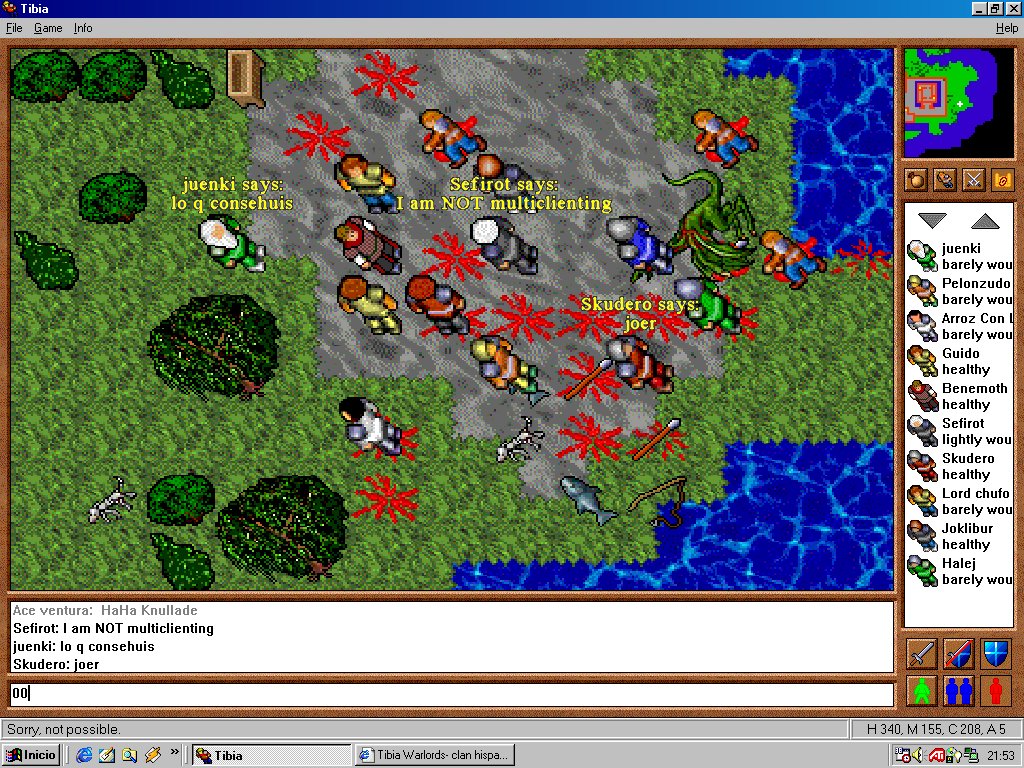

The next update was a series of smaller updates starting on September 24th, 2001, with the launch of the new GM system which was the only change to the game. This update was launched to provide GMs with the first dedicated immortal character (GM tool) which looked the same as the Hero sprite. Though Edron was still a month away the very different looking sprite for GMs was unlike any other character in Tibia so players thought they were monsters and would often try to attack them. Immortality prevented this issue from becoming anything serious, reducing it to a minor annoyance.
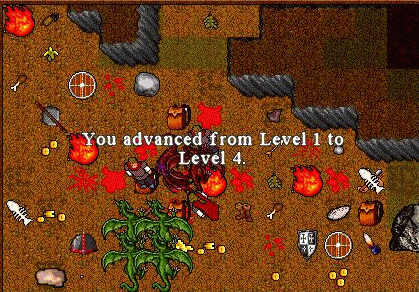
This sleek character had no cap and could not be damaged by anything, so it was ideal to run into dangerous places to investigate issues. The character was designated as level 1 and though couldn't attack or be killed, they could use magic provided they met the requirements. This meant that a GM could use a LMM as it was the only rune to require magic level zero and could be shot from the ground. During the test server Taghor pushed a back pack of LMM to the PoH dragon lair and killed a DL while it stood still (GMs were not targetable so the monsters didn't move from their spawn points or react to them). Upon death the GM char jumped from level 1 to 4. CIP obviously didn't want this to happen and changed the mechanics of the tool to disallow gaining experience and reset all GM tool chars back to level 1. As these chars couldn't be damaged, they were ideal for checking in on players or investigating issues without having to worry about dying. They were very fast for players at the time as they had a special GM speed, but no one knew about how speed worked at this time. I believe they could adjust their speed if desired but I don't know if this was available at introduction.
With the introduction of the account system just a couple of months prior in July, GMs would now have one more tool to help in their investigation of troublemakers. Players who caused problems would have their entire account blocked, not just the character they caused problems with. The crimes of one character would now reflect on every character, making it more challenging to break the rules. A record of crime would show up in their accounts which GMs could see. Players who broke the rules repeatedly would no longer need to rely on a GMs memory and internal discussions before they were removed from the game for good. This was done to punish the player behind the character which limited their ability to jump on a new character and continue the same crimes.
 Further help to GMs in their ever-increasing workload would now come in the form of additional help from others who performed some of the GM duties, but didn't have the banning power or authority of a GM. These players were called Counsellors and were elected to the position by each GM who would become responsible for them while they were in that roll.
Further help to GMs in their ever-increasing workload would now come in the form of additional help from others who performed some of the GM duties, but didn't have the banning power or authority of a GM. These players were called Counsellors and were elected to the position by each GM who would become responsible for them while they were in that roll.
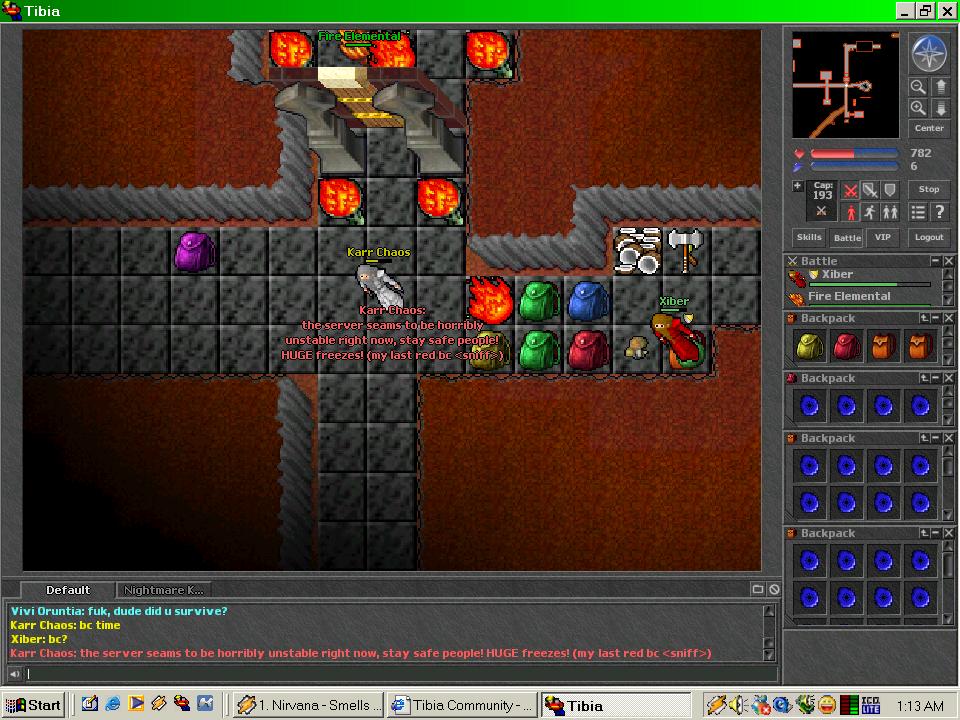
This position was sort of like a junior GM and future GMs would be promoted from this small pool. With GMs becoming increasingly focused on banning players, the Counsellor role was more designed to answer player questions and help the community like the original duty of Wizards. These players were like an ambassador of the game and would spend much of their time supporting the game through their work in aiding in GMs in their investigations and helped calm the community during incidents such as lag spikes. To give them legitimacy when acting in their capacity, they could red text players by using the @name@ command which would bypass any ignore filters, and also broadcast without mana cost in red text using the #B command. They also had access to the GM channel and had their own Counsellor forum to discuss issues relating to their role privately on the boards.
To become a Counsellor, you had to write an application in the "Gamemaster Board" on the official forum or be appointed to the position by a GM. Those who best fit the role was those who were considered "a trustworthy person and experienced adventurer". Players who accepted the role followed the direction of all Gamemasters and were expected to not misuse the powers they were given. This was a volunteer role, so no compensation was provided or expected.
I was brought on by Elsoaydar as one of his Counsellors not long into the program. It was a demanding role where I would spend a great deal of time answering questions in the channel while I trained and helped Elo and later Hu Gadarn with processing evidence for more complex banishments such as in the case of cheaters. I was very justice oriented in these days and enjoyed the role greatly, and even spent considerable time emailed CIP and their staff the results of my investigating and bugs which I tested and provided documentation for. Only one screenshot of my red broadcasts exists, though I sent many to warn players of lag spikes or other important issues like player traps in Kaz.
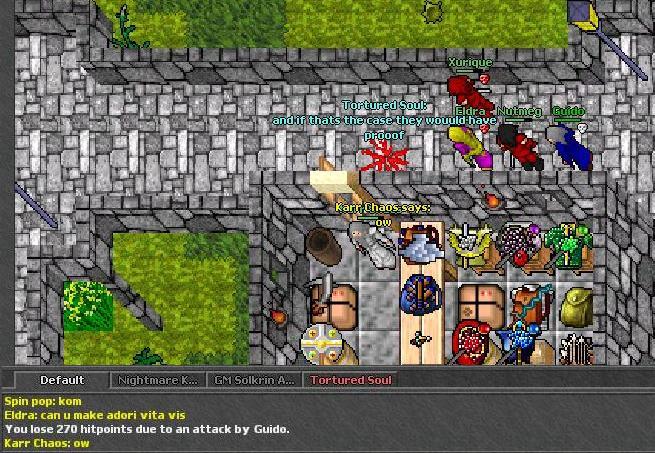
When the system was removed and replaced with the Tutor system in 2005, I lost my position when was banished by Guido whom I had fought with often over the years. The reason for this as you might know was for my extensive insistence on the innocence of Smoke in his deletion and the growing frustration with the system that I had experienced, and many others felt with the growing problem of inconsistent punishment. A banishment on your account automatically ended your special status which is why I don't hold the Senator title today, even though the week ban is the only ban I have ever had (administered by Guido personally). You can read up on this incident in the deletion of Smoke article on this site. Before this turn of events, I was almost a GM, failing to make the cut by a single vote internally I am told. Though I regret my actions, which led to the loss of my position, I do not regret how far I pushed the system in my quest to administer justice fairly. That the integrity of the system was compromised by the game creators directly is a travesty, and underscores just how unfair this game is with every element of its game play. I can only imagine how this growing frustration between the games rule enforcers and its creators eventually let the system being disbanded entirely.
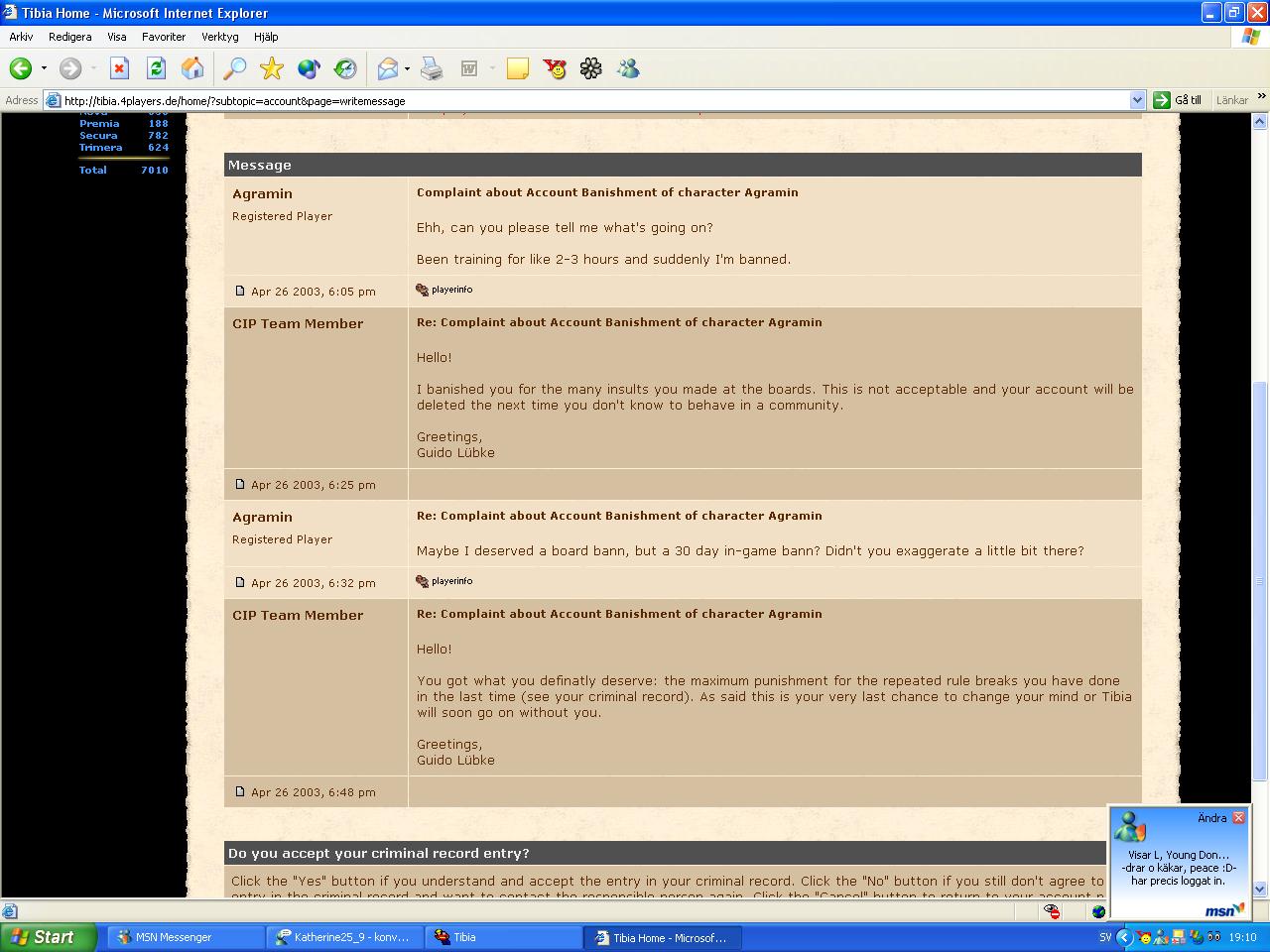
With these new powers and with the introduction of paid accounts through the Premium system, it was now necessary to add a formal system of complaint to provide integrity to the system. This system would bring in CIP or their representative to review and decide if a ban were fair or if it should be shortened, or even cancelled. In some cases, a ban might even be extended if the player lied about the circumstances which led to the ban. The criminal record addition also made it possible to issue formal namelocks and keep track of players who were deliberately causing grief or mischief like by impersonating other players through name fakes. Namelocks were initiated by a GM command which would kick the character and block them from logging into the game until a new name was submitted through the account. This feature, added December 7th, was a great help to GMs. In an effort to make sure the namelock didn't cause undue harm, GMs would almost always teleport to the player prior to banning them for a namelock to ensure that they were not harmed while they displayed an item in the depot or were in a dangerous hunting spot.
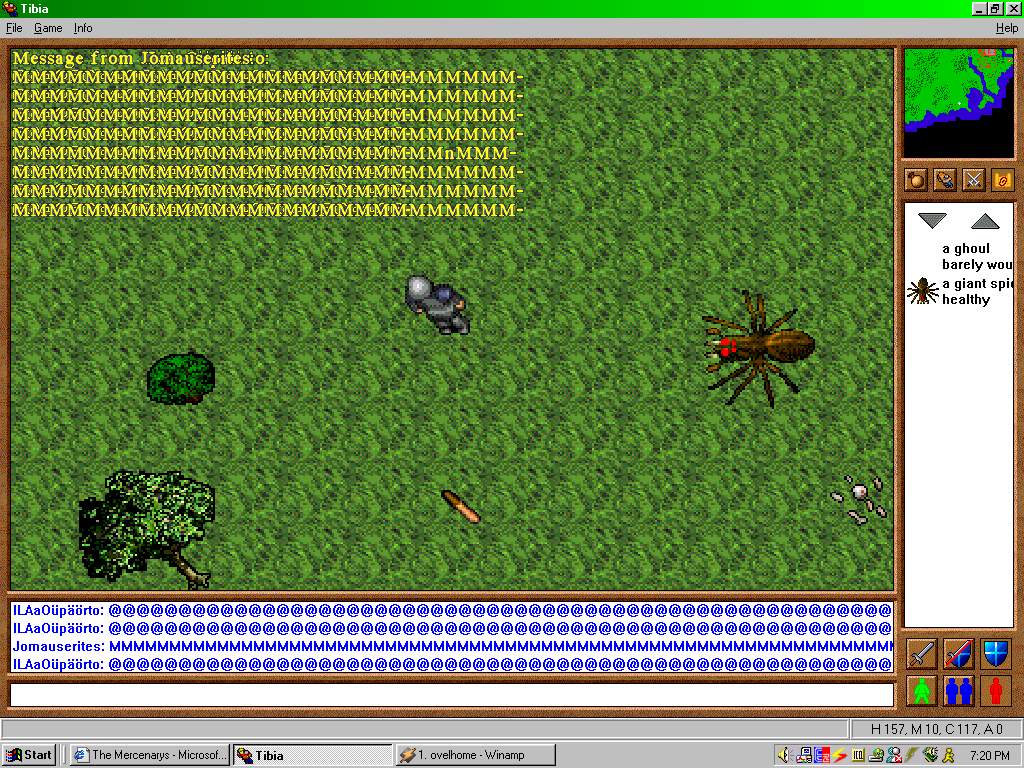
GMs were not the only ones to receive changes as players would now also have tools to help them navigate the bustling community. For those who disliked broadcasts or classified them as spam they could now block them from crowding their screen with the #i #b command. Yells similarly could be blocked by the #i #y command. Spam was still a very big problem at this time as you still had to block individual players manually by typing their name exactly which wasn't easy and capital I and lowercase l were indistinguishable on the client.
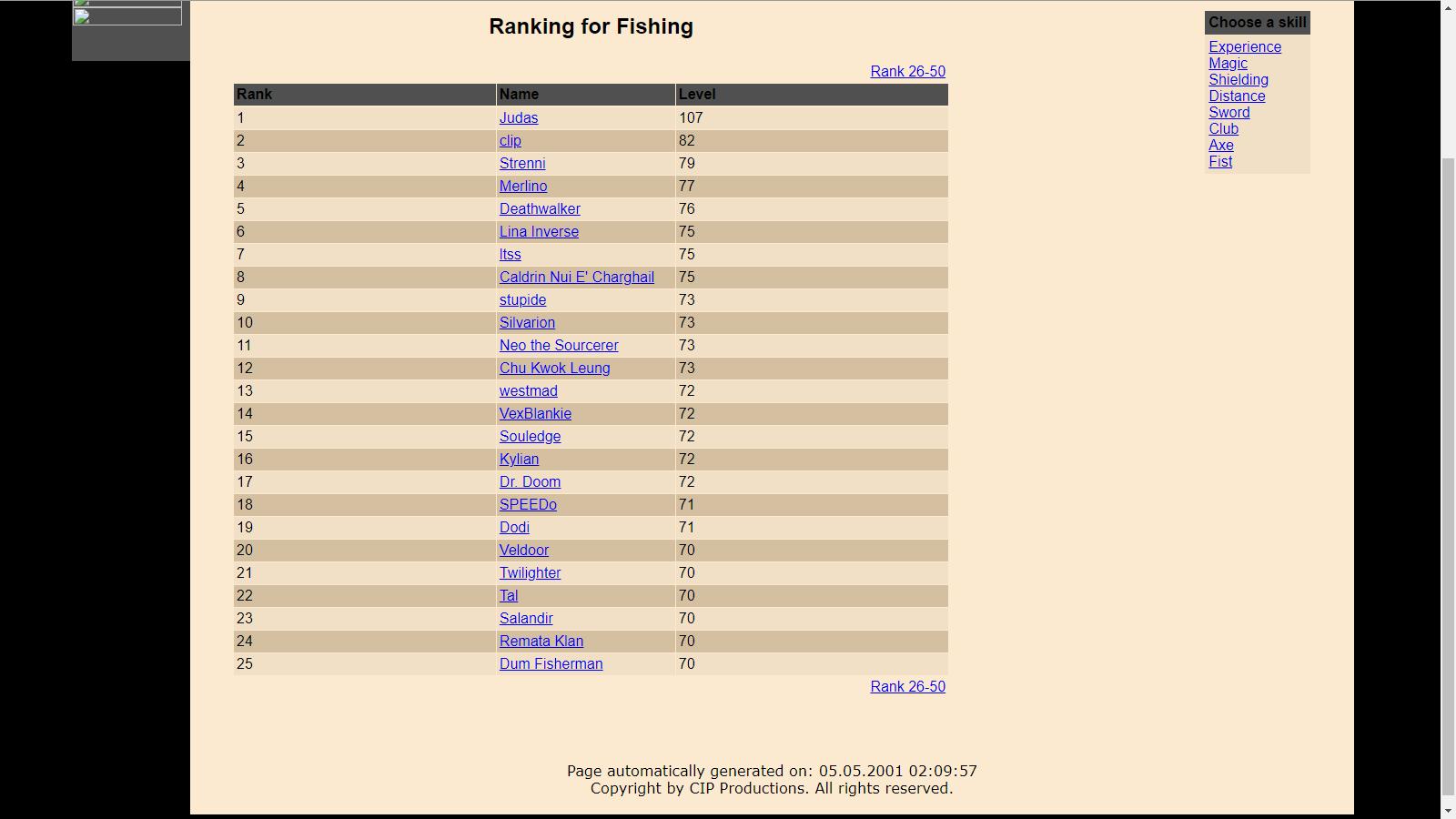
This update also introduced a new and important rule change, stating officially that Macro use was forbidden. Players had long used repetition software to take care of Tibia's mundane tasks or to provide themselves with an edge such as accurate rune aiming. Now anyone employing cheats would face banishment or deletion. Fishing macro use was a major problem before, and the most obvious cheat for players to see as offenders appears with unrealistic fishing skills in the high scores. Now with the rule eliminating macros, these players would be punished more often as it was easier to prove. Others such as rune aiming where much more challenging to detect and punishment relied on the reputation of the GM or player who reported the crime. Many times, these bans would be reversed due to lack of conclusive evidence.
Additionally, with the introduction of the account system CIP formally made the trading of accounts forbidden and doing so would result in a ban or deletion. Prior to these players had sometimes exchanged or sold individual characters or even shared character such as the well-known NoSoul who was played by three brothers, I think. This change was likely to limit the abuse of multiple people paying for one premium account and using it at different times, denying CIP some much needed income.
Oddly, a strange island to the west of Carlin begins to appear on the WoT map around this time. After inspecting it I believe it was likely the original GM island as it only appears on maps after this point then disappears after the new larger island between Carlin and Thais was added.
With the next major update just a month away, players were advised to move all their items off the map and into their depot's once again as the map would be fully reset for the next major area. This new area would be premium only accessible and would provide more surprises for players.